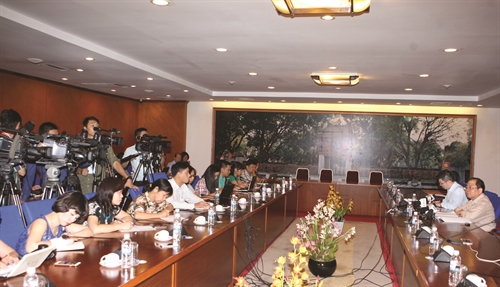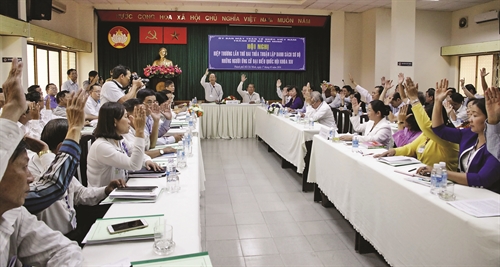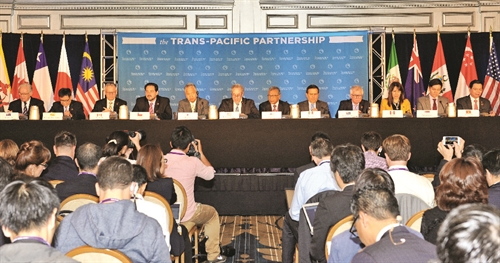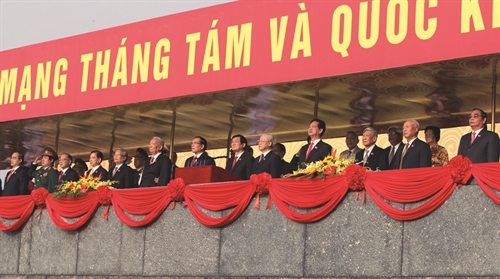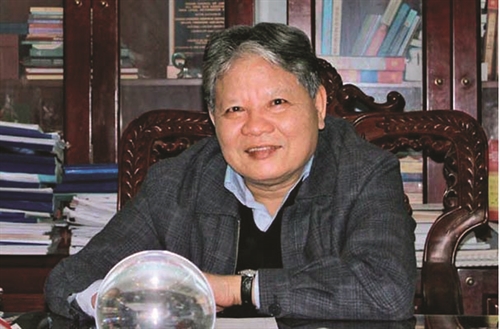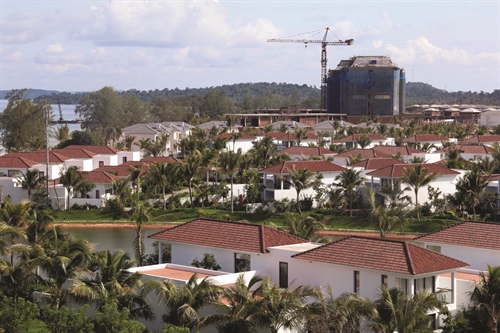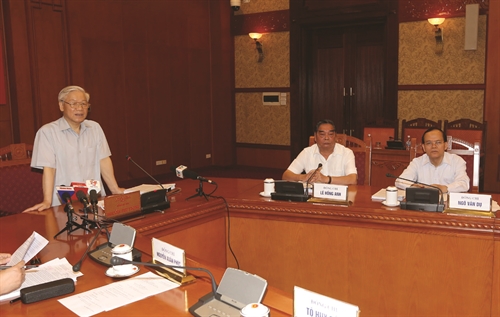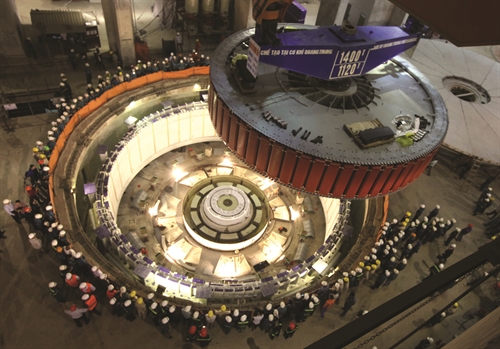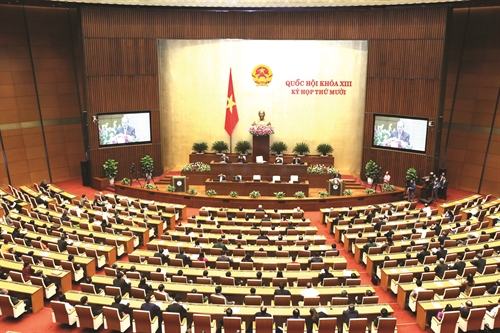As the XIIIth National Assembly’s term is drawing to an end, Vietnam Law and Legal Forum talks with Associate Professor-Doctor Le Minh Thong, National Assembly deputy and Vice Chairman of the National Assembly’s Law Committee, about legislative work in the past five years.
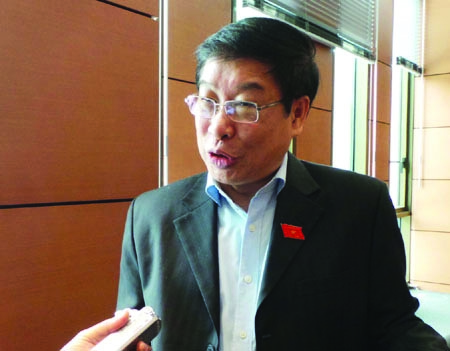 |
Could you make a brief review and evaluation of legislative work of the XIIIth National Assembly?
Looking back at the past five years, it can be said the current legislature has well fulfilled its role as the highest representative body of the people and the highest state power body, attaining landmark achievements in its activities, especially in exercising constitutional and legislative powers.
During its tenure, the National Assembly promulgated a new Constitution and 107 codes and laws, including seven laws to be passed at its upcoming and also last session. That is not to mention 112 resolutions of the National Assembly and 10 ordinances of its Standing Committee. This is the largest number of codes and laws ever passed in a single tenure during the 70-year history of the Vietnamese National Assembly. The numbers of codes and laws passed by the Xth, XIth and XIIth National Assembly were just 53, 84 and 67, respectively.
The enactment of the new Constitution in 2013 marks a special political-legal event of not only the parliament but also the country as a whole. Drawing on the values of the constitutional history crystallized in the previous constitutions, adhering to the Political Platform of the Communist Party of Vietnam, and closely following the practical realities and development requirements of the country, the 2013 Constitution creates a new framework for the building and strengthening of the socialist law-governed state, continued development of the socialist-oriented market economy and comprehensive and deep international integration.
As soon as the 2013 Constitution was enacted, the National Assembly took prompt actions to put it into reality. A comprehensive plan on review, revision, cancellation and release of legal documents in line with the Constitution was elaborated. On that basis, the National Assembly adjusted its whole-term legislative program and set legislative tasks and objectives for each year and each session.
During this term, the National Assembly has promulgated many codes and laws governing such important issues as organization of the state apparatus, human rights and citizens rights; and economic, cultural and social activities. They include the Law on Organization of the Government; the Law on Organization of the National Assembly, the Law on Local Administration, the Penal Code, the Criminal Procedure Code, the Civil Code, the Civil Procedure Code, the Enterprise Law, the Investment Law, the Housing Law, the Land Law, the Vietnam Maritime Code, to name but a few.
Constitutional and legislative activities of the current National Assembly have basically met the requirements for pushing ahead reform of the organization and operation of the state apparatus by the standards of a socialist law-governed state; ensuring the respect for, guarantee and protection of human rights and citizens’ rights; building and developing the socialist-oriented market economy and deeper integration into the global economy. The outcomes of these constitutional and legislative activities create a premise for the next parliaments to further improve the legal system conducive to national development in the new situation.
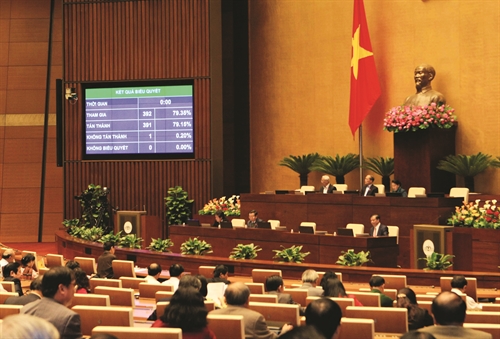 |
| National Assembly deputies vote to adopt the Resolution on the central budget allocations in 2016__Photo: Doan Tan/VNA |
According to evaluation results, many reforms have been seen in legislative work of the XIIIth National Assembly. Could you further explain about these reforms?
Reforms in the legislative process have brought about impressive achievements in the National Assembly’s legislative work.
Right from the early days of the term, the leaders, the Standing Committee and agencies of the National Assembly have paid special attention to the research, renewal and improvement of legislative activities. Every stage of the legislative process has been renovated, leading to practical results. The whole-term legislative agenda was developed on the basis of the implementation plan of the 2013 Constitution and, as a result, was suitable to practice. Annual legislative programs were prepared and adjusted in a timely manner, closely following practical changes and developments.
Drafting agencies carried out policy making and policy analysis on the basis of researches, evaluations and reviews in each relevant sector, which help provide solid grounds for drafting bills.
The Ethnic Council and Committees of the National Assembly verified draft laws in a proactive manner through independent survey and evaluation of the practical situation and consultation of experts and stakeholders. Hence, they were able to come up with more objective criticisms and evaluations in their verification reports. In the course of writing and verifying draft laws, both drafting and verifying agencies took the initiative in holding public consultations on important issues, thus involving a lot of people in legislative work. The diversification of forms and methods of public consultation, especially the early publishing of draft laws on the e-portals of the Government, National Assembly and drafting agencies, has increased the effectiveness, publicity, transparency, democracy and prudence of legislative work, while making the best use of the people’s intellect and attaining social consensus right from the policymaking stage.
Drafting and verifying agencies also closely cooperated with one another from the early stage and throughout the legislative process until the drafts were finalized.
Positive changes were also made in the deliberation on draft laws within National Assembly deputies’ delegations and groups and at plenary meetings, creating more opportunities for deputies to give their inputs. National Assembly deputies were also provided with adequate information and documents for comparison and analysis of draft laws and, therefore, the quality of their opinions on draft laws has been raised.
Though there is still room for improvement, legislative reforms which have been carried out during this tenure are actually of great significance.
In spite of their achievements, legislative activities still see certain limitations as several laws still fail to fully or truly reflect the needs of social life. What proposals has the Law Committee made to overcome these limitations?
In fact, weaknesses in legislative work have existed over many legislatures and different solutions have been implemented but their efficiency is not as satisfactory as expected. During the past years, the Law Committee has put forward many proposals aiming to raise the quality of draft laws. These proposals focus on the following issues:
Firstly, it is necessary to strictly comply with the Law on Promulgation of Legal Documents so as to restrict the adjustment of the whole-term and annual legislative programs. We should include in the lawmaking program only draft laws that fully meet the set requirements, such as adequate explanation about the necessity of the draft, clear policy on matters to be regulated, objectives to be attained, major contents of the draft, and enforcement methods and roadmap. At the same time, it is a resolute requirement to remove from lawmaking programs those drafts that exist in name only, their urgency has not yet been proved and their policies remain unclear.
Secondly, the Law Committee has proposed restricting the building of draft laws with a large scope of regulation and draft laws that regulate too many relations. We should instead elaborate and pass laws with a narrow scope of regulation, focusing on some specific relations so as to ensure its practicality and feasibility and limit the issuance of implementing regulations. Reality shows that the fewer chapters and articles a law has, the more easily it can be applied and revised given a developing and changing society. Such small laws can be codified into big codes when conditions permit.
Thirdly, law enforcement review is key for ensuring the feasibility of laws. Better review of the spheres governed by a law to accurately identify matters arising in reality would help propose good policies as a ground for revision of the law or issuance of a new one. So, in its verification activities, the Law Committee has paid special attention to analyzing and evaluating law enforcement review reports and assessment reports on the possible impacts of the draft laws. Thorough and objective assessment of these reports provides an important basis for making verification reports and recommending the drafting agencies to adjust policies and contents of the draft laws.
Fourthly, in order to raise the quality of draft laws, the verifying agency should carry out independent theoretical researches and field surveys so as to obtain grounds for discussing and criticizing the assessment reports of the drafting agencies. Consultations with experts and the community must be regarded as an important information channel for listening to, exchanging and receiving opinions in all stages of the legislative process. The drafting and verifying agencies must rely on the people to make laws and apply flexible methods and forms for mobilizing the intellect and experience of the people of all strata in drafting laws. Only by doing so, can the law really become a legal form of life, originate from life, and serve civil life, civil rights and democracy.
From the legislative results of the XIIIth National Assembly, what lessons can we draw for legislative activities in the next term?
From my own experience learned in the capacity as a National Assembly deputy and a Law Committee member, I would like to share some lessons below.
The first lesson is in all times and circumstances, legislative activities must strictly and thoroughly comply with the Constitution. Constitutional supremacy is a fundamental requirement of the rule of law and a cornerstone principle of lawmaking activities. The Constitution’s provisions are the basis for drafting laws and a criterion for assessing the legality of a specific law. Therefore, drafting and verifying agencies as well as lawmakers must discuss and pass laws on the basis of the Constitution and compare the provisions of the draft laws against those of the Constitution to make decision.
The second lesson is the people’s interests are the root of the law. All draft laws must stem from the will and aspirations of people, aiming at the objectives of respecting, guaranteeing and protecting lawful rights and interests of the people. Relying on the people, listening to them, learning experience from them, and drawing on their intellect and creativeness constitute basic conditions for having a law of the people, by the people and for the people.
The third lesson is to promote renovation and creativeness in all stages of the legislative process. It is a must to adhere to the constitutional principles and ensure the consistency and synchrony of the legal system, while continuously renewing legal thinking and performance of lawmaking methods and procedures to make legal provisions not only truly reflect the reality and keep abreast of the changing circumstances but also drive future development.
The fourth lesson is cooperation and criticism between drafting and verifying agencies are decisive to the quality of all draft laws. Bringing into play the initiative and sharing of information and ideas on each draft law between these agencies can make the law comprehensive and objective, winning the consent and support of the affected entities when it is passed.
The fifth lesson is the quality and efficiency of a law much depend on the role, capacity and political responsibility of every National Assembly deputy for the interests of voters and the nation. So, attention should be paid throughout a term of the National Assembly to enhancing the lawmaking capacity of National Assembly deputies. They should be equipped with not only lawmaking knowledge and skills but also sufficient information and materials on draft laws as well as necessary expert assistance. To raise their lawmaking capacity, National Assembly deputies should keep close contact with voters at the grassroots so as to reflect the people’s needs in the laws in the most creative manner.
Finally, the role of the press and communication should be brought into full play in legislative activities of the National Assembly. The media make legislative work lively, transparent and democratic.- (VLLF)
